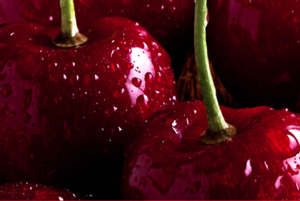A unique trade agreement to export Canadian cherries to China could signal much larger free-trade agreements between the two countries.

When Prime Minister Stephen Harper was in China earlier this month he announced an agreement which detailed the conditions by which BC cherries could be exported to China. The terms of the product agreement are like no other and some experts think that it could open the door for substantial Canada-China trade agreements.
“It could serve as a very good stimulant for future, more in-depth agreements.” said Professor Yanling Wang from Carleton University.
According to Industry Canada data, the value of BC cherry exports to China were 19 times larger in 2013 than in 2010. Also, according to this data, BC is the only province that exports cherries to China.
The Phytosanitary Arrangement signed on signed on Nov. 8 is unlike any other.
A representative from the Canadian Food Inspection Agency said that the BC cherry Phytosanitary Arrangement shows the government of China that the cherries being shipped comply with all official plant-health import requirements.
The Phytosanitary Arrangement hasn’t been made public yet, said James Watson from Agriculture and Agri-Food Canada. However, what makes the arrangement unique is that China agreed to a new cherry sampling process, said Sukpaul Bal, President of the BC Cherry Association.
Much of the negotiations for the Phytosanitary Agreement were around the treatment process and China has agreed to the brown sugar test. The alternative is the cold-treatment test.
According to Bal, not doing a cold treatment test is what makes this deal so attractive to cherry producers.
The brown sugar test samples one per cent of the cherry shipment by crunching up cherries in a mixture of brown sugar and water. After the mixture is left for approximately 10 minutes, if any larva is in the fruit, it would float to the surface. In a cold-treatment test, cherries are held in a room at 0 degrees Celsius for two weeks. Any pests wouldn’t survive that period, said Bal.
“It might open the door for other products in the future,” said Bal about the agreement.
According to some trade experts, this kind of agricultural agreement could open the door to additional trade deals between Canada and China.
There is an appetite for an agreement said Wang. Wang has previously worked as a consultant in the World Bank and as a researcher at the State Economic and Trade Commission, P.R China.
“I think it’s something simple to get the message out that it’s not so difficult – it’s something you could do and it’s something we should do,” said Wang about future trade agreements.
According to Bal there are other industries which are trying to get their products into China as well.
“I know BC blueberries is eager to get into China,” said Bal. “Other countries as well are looking at the steps we took and how we got access into China and are waiting in line to get their product in.”
This could be the start of something more.
“It’s tough to force products on people,” said Bal.
The demand was there in the case of BC cherries.
“Key groups in China were putting internal pressure as well. We were pressuring our government: ‘let’s work with these guys and figure something out,’” said Bal. “It all looks like this deal is going to work well for both sides. Cherries are such a highly valued product out there and we can grow such a nice product in our valley here.”
Bal said he was surprised when he saw Prime Minister Harper talking to Jack Ma, one of China’s most prominent businessmen, about Canadian cherries.
Canada currently exports $3,510,583 worth of cherries to China. Canada’s top five cherry markets are Hong Kong, the United States, Taiwan, China and Belgium.
China and Australia recently signed a free trade agreement.
“That made a lot of Canadians think,” said Wang. Australia and Canada have a lot in common, said Wang, many think that the Australia free trade agreement will have some negative impact on Canadian industries.
“That’s why they felt they needed to move,” said Wang.
